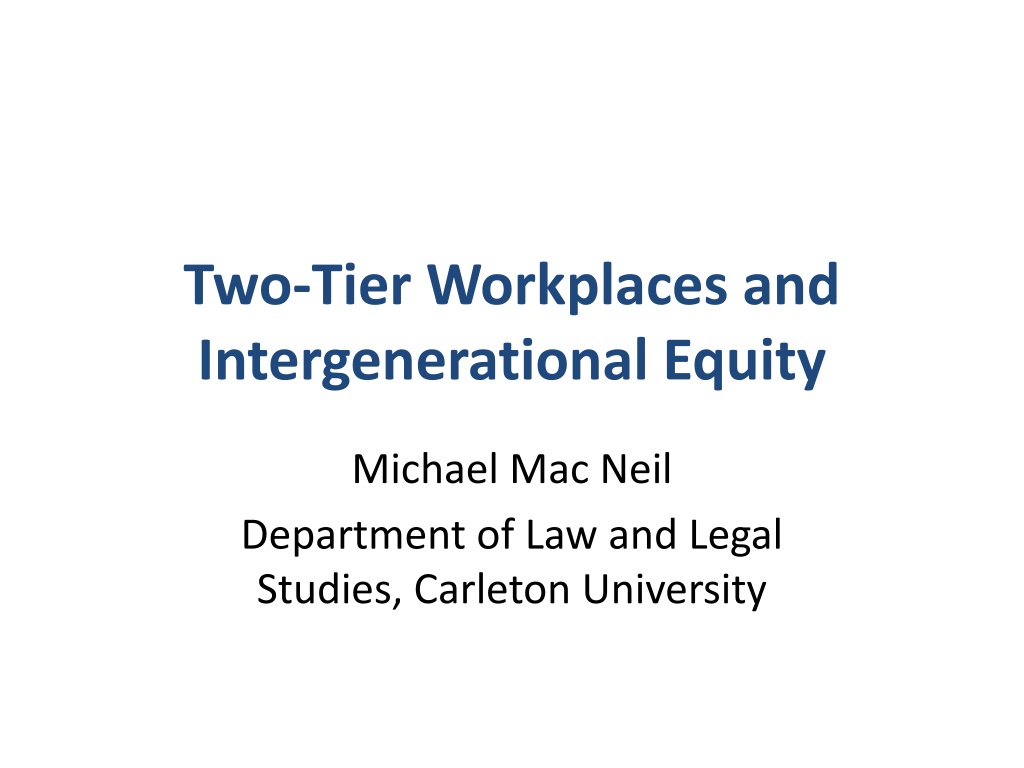Understanding Two-Tier Workplaces and Intergenerational Equity
Explore the concept of two-tier workplaces and intergenerational equity through various aspects such as job structures, benefits, hiring practices, and pension plans. Delve into the implications, challenges, and evaluations of this system, including discrimination issues and the Quebec approach.
Download Presentation

Please find below an Image/Link to download the presentation.
The content on the website is provided AS IS for your information and personal use only. It may not be sold, licensed, or shared on other websites without obtaining consent from the author. Download presentation by click this link. If you encounter any issues during the download, it is possible that the publisher has removed the file from their server.
E N D
Presentation Transcript
Two-Tier Workplaces and Intergenerational Equity Michael Mac Neil Department of Law and Legal Studies, Carleton University
Two-Tier EMPLOYER JOB WORKPLACE Same Different WAGES BENEFITS
HIRED BEFORE MAGIC DATE HIRED AFTER
Use of Two-Tier Breweries Airline Industry Canada Post US auto industry US Steel Quebec municipalities
A Note About Pensions Defined Benefit 92% underfunded; $350 billion shortfall (2010) Defined Contribution - Slowly replacing defined benefit plans Deficits Risk Transition
Duty of Fair Representation Efficiency Flexibility in Collective Bargaining
Proving Discrimination Statistics Overlapping Age Cohorts
Two-Tier as BFOR Access to Employment Economic Necessity Collective Bargaining Job Security Seniority Grand Parenting
Quebec Approach Two Tier
Issues With Quebec Approach differentials solely because of date of hiring Same tasks in same establishment
Issues With Quebec Approach Temporary v. Permanent Differentials Union Liability Seniority and Grand Parenting
Conclusion Equity

